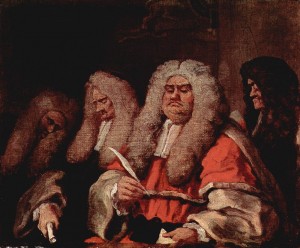ObamaCare Upheld . . . Again
 Today the U.S. Supreme Court announced its decision in the widely anticipated case of King v. Burwell, ruling that the language of the statute authorizes tax credits for individuals who use health insurance exchanges set up by the federal government as opposed to the states. The result of the ruling is that the Affordable Care Act continues to operate and that millions of previously uninsured Americans will continue to receive health insurance under ObamaCare. Many observers had predicted an adverse ruling from the Court, and a period of uncertainty (if not chaos) if the use of federal health insurance exchanges was struck down. Today’s ruling by the Court means that there will be no disruption in the workings of the Affordable Care Act. Coupled with this week’s passage of “fast track authority” for a Pacific trade bill, the ruling also cements a record of legislative accomplishment for President Obama that will add to his legacy.
Today the U.S. Supreme Court announced its decision in the widely anticipated case of King v. Burwell, ruling that the language of the statute authorizes tax credits for individuals who use health insurance exchanges set up by the federal government as opposed to the states. The result of the ruling is that the Affordable Care Act continues to operate and that millions of previously uninsured Americans will continue to receive health insurance under ObamaCare. Many observers had predicted an adverse ruling from the Court, and a period of uncertainty (if not chaos) if the use of federal health insurance exchanges was struck down. Today’s ruling by the Court means that there will be no disruption in the workings of the Affordable Care Act. Coupled with this week’s passage of “fast track authority” for a Pacific trade bill, the ruling also cements a record of legislative accomplishment for President Obama that will add to his legacy.
Somewhat surprisingly, the Court voted 6-3 in favor of the Administration’s proffered reading of the statute. Some observers had predicted a narrower margin. Chief Justice John Roberts wrote the opinion for the majority. The Chief Justice’s opinion also was crucial in upholding the Affordable Care Act in the NFIB v. Sebelius case in 2012, and it therefore appears that future historians will inevitably evaluate John Roberts’ career as Chief Justice in light of his prominent role in the survival of ObamaCare.
